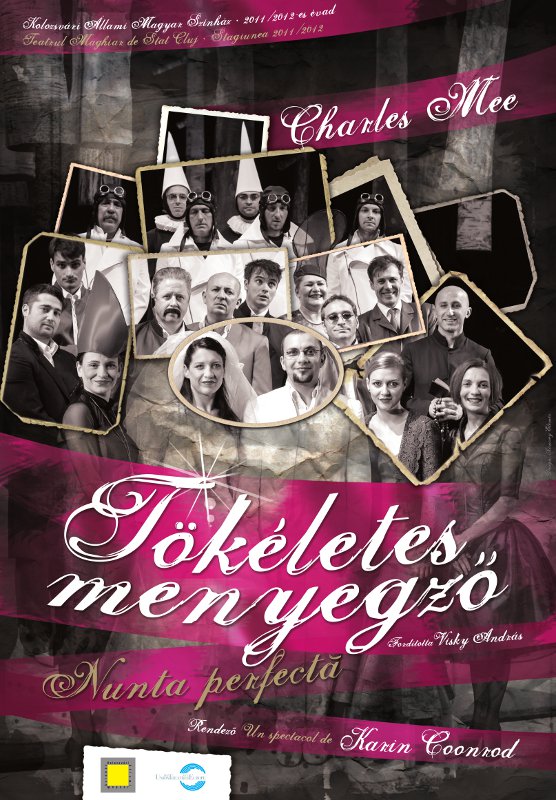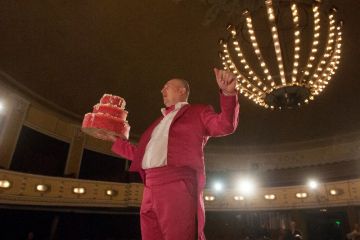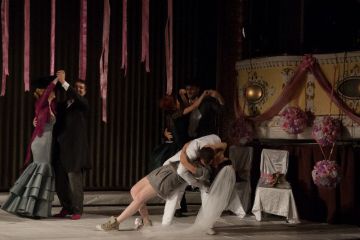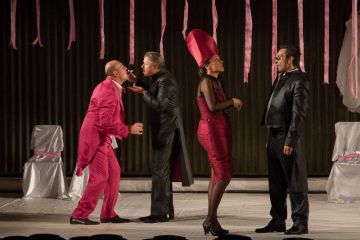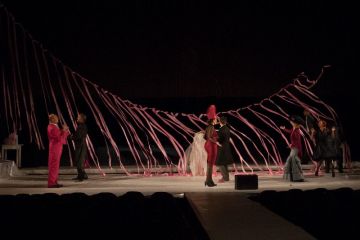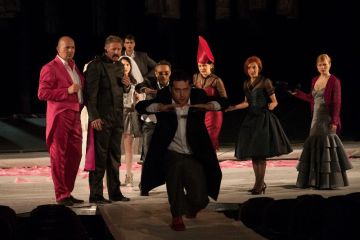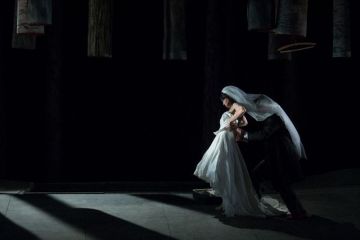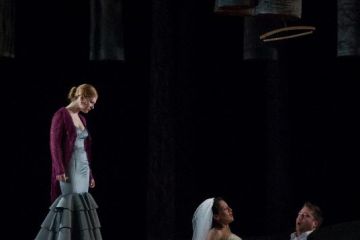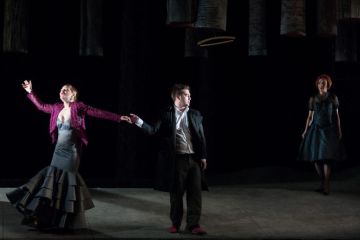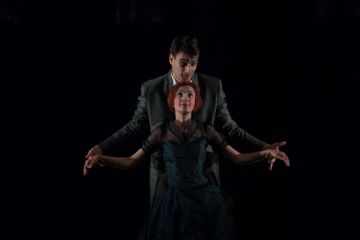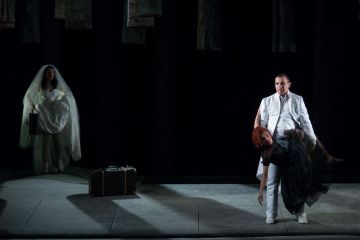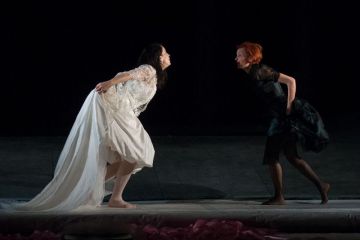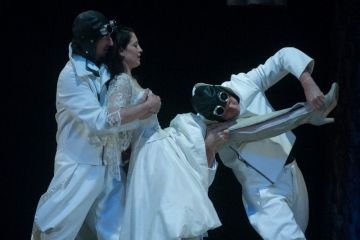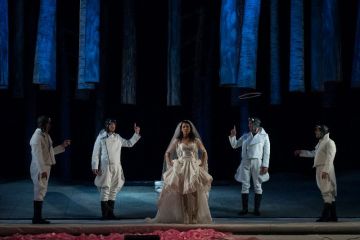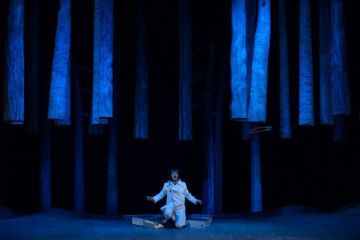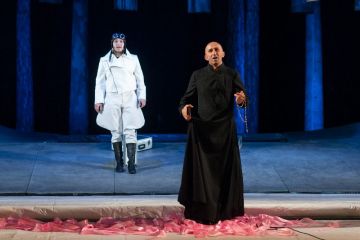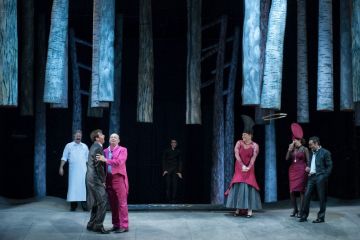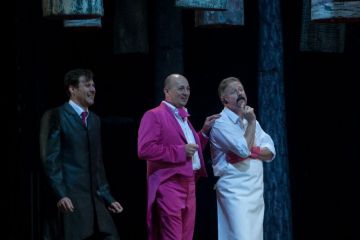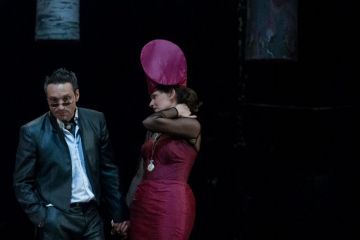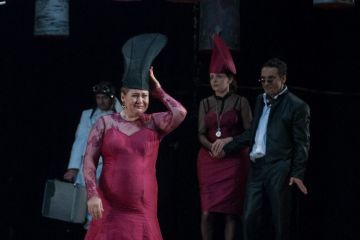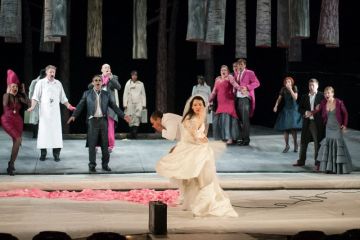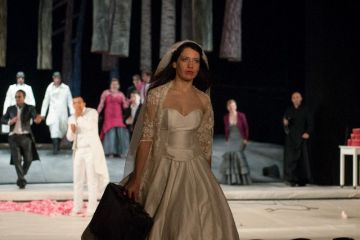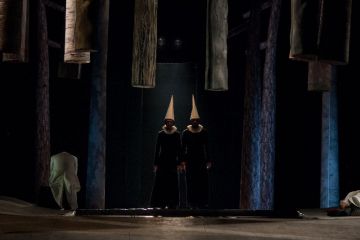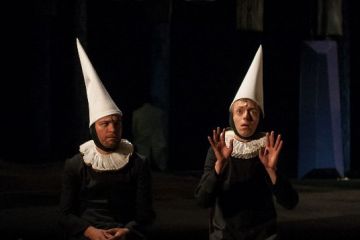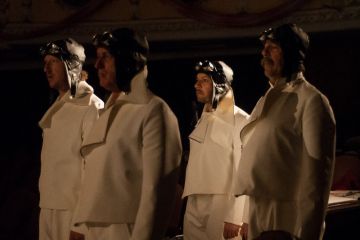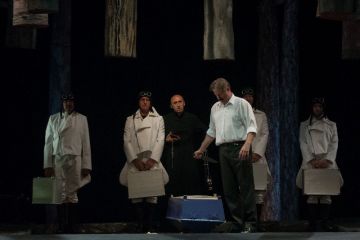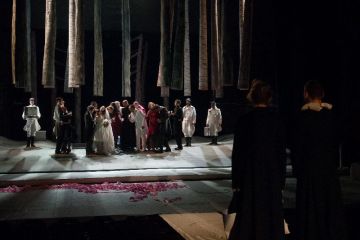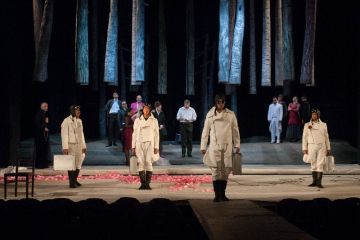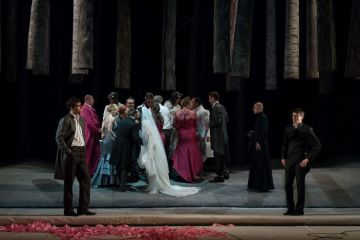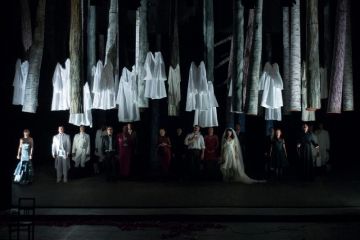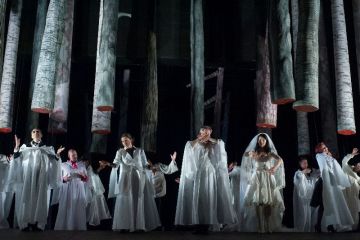Charles Mee
A Perfect Wedding
Main stage
Meridee
Enikő Györgyjakab
Tessa
Anikó Pethő
Jonathan
Szabolcs Balla
Maria
Andrea Kali
Francois
Zsolt Bogdán
Frank
András Hatházi
Edmund
Attila Orbán
Amadou
Ferenc Sinkó
Vikram
Ervin Szűcs
Djamila
Csilla Varga
Willy
Balázs Bodolai
Father Thane
Loránd Váta
Ariel
Melinda Kántor
James
András Buzási
Isaac
Gábor Viola
Dieter
Lehel Salat
Julian
Róbert Laczkó Vass
Heiner
Sándor Keresztes
Bob
Loránd Farkas
Karl
Csongor Köllő
directed by
Karin Coonrod set design
Carmencita Brojboiu costume design
Oana Botez music composed by
Lucian Ban dramaturg
András Visky musical coordinator
Zoltán Horváth director's assistant
Andrej Visky stage manager
Andrej Visky
Enikő Györgyjakab
Anikó Pethő
Szabolcs Balla
Andrea Kali
Zsolt Bogdán
András Hatházi
Attila Orbán
Ferenc Sinkó
Ervin Szűcs
Csilla Varga
Balázs Bodolai
Loránd Váta
Melinda Kántor
András Buzási
Gábor Viola
Lehel Salat
Róbert Laczkó Vass
Sándor Keresztes
Loránd Farkas
Csongor Köllő
directed by
Karin Coonrod
Carmencita Brojboiu
Oana Botez
Lucian Ban
András Visky
Zoltán Horváth
Andrej Visky
Andrej Visky
Date of the opening: May 23, 2012
Date of opening: 23 May 2012 Duration: 1 hour 40 minutes, without intermission.
Decor made by Altax SRL (Bucharest)
Charles Mee has a savage humor, yet he is also interested in reconciliation. Often taking for his inspiration the Greeks and Shakespeare, mixed with varied texts known and unknown since those times, he views the present western culture with a bitter comedy and his characters negotiating their survival in such a landscape of spiritual wasteland. In A Perfect Wedding he shows a comic tenderness for his characters, but they are not great character studies of heroic proportions. They are people who are distracted easily, who speak what they believe in the moment and then change their mind in the next. They all want attention and they want to win. In the modern culture surviving is winning. Winning is all. The play takes as its central image the bride and I see this as an icon of romantic consumerism. The wedding has become a big business. Often a year later a divorce is underway. The play is interwoven with warning.
(Karin Coonrod)
One of the most prominent playwrights of contemporary American literature is Charles L. Mee, who has rewritten the most important works from the history of theatre, from the Greeks to Shakespeare. His plays, using mostly borrowed dramaturgical textures, interweave images, fragments, myths, and nightmares of a Western culture which is dying from an intense identity-crisis. He places events that directly affect and threaten us within the larger perspective of Western civilization. The migration of late modern times, the questioning of sexual identity, the rattling of the institution of marriage, the weakening of Western “white” culture, and the fashionable attraction towards exotic, seemingly authentic, and, therefore, desired cultures: these are all symptoms of a general decline. However, in Charles L. Mee’s theatre, rather than dark tragedies, we are confronted with stories full of exceptional humour and sarcasm that unmask human and social relations exposed to shallow media trends. Mee’s theatre might seem cruel at times, but it is never unloving.
(András Visky)









